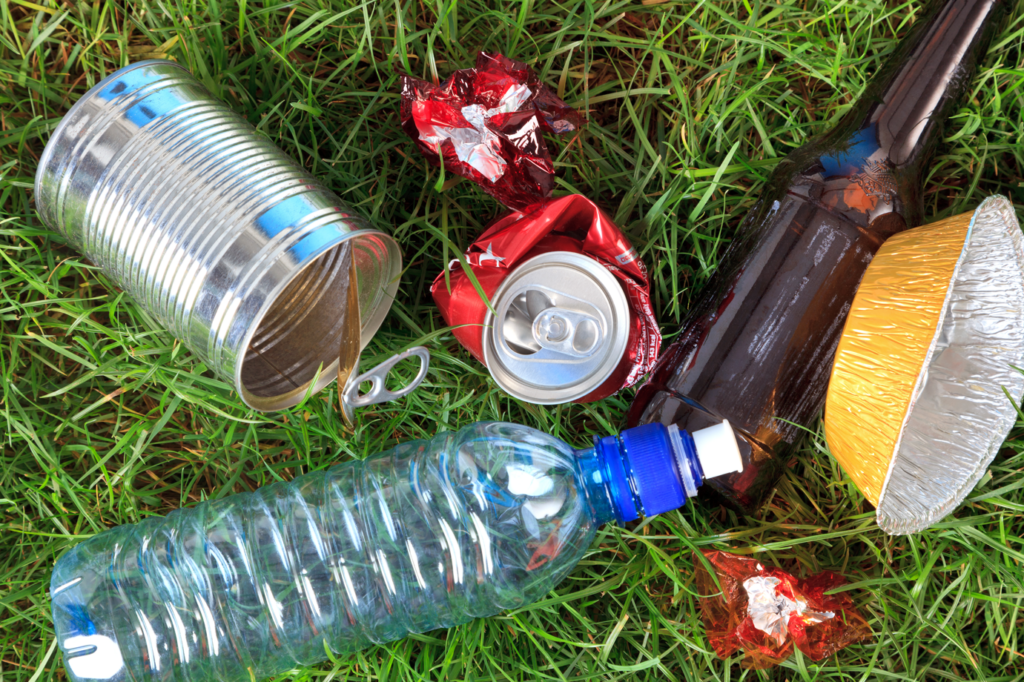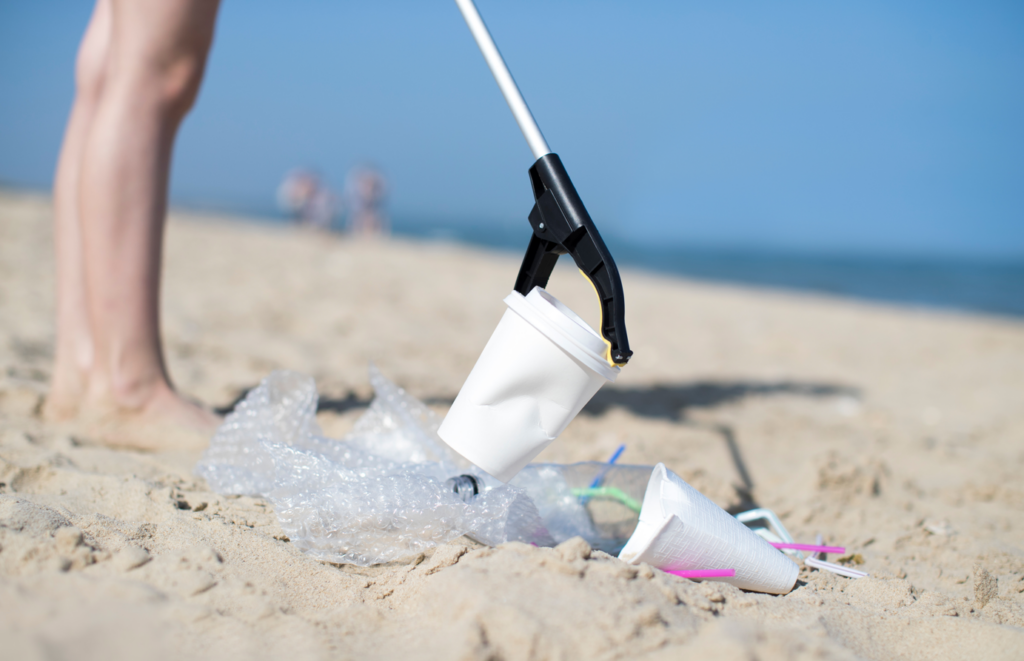Our streets, countrysides, beaches, and waterways are often plagued with litter and waste, not only is this an unappealing sight, but it is also damaging to our environment and wildlife. Even for those who may have not witnessed or noticed a litter problem themselves, media and online outlets such as social media, are quick to highlight the issue – and it soon becomes a regular news story.

Where did this litter come from?
30 million tonnes of litter is collected from our streets every year. Whilst we can all agree that this wasted litter is a big problem – many people tend to focus on solving the issue by cleaning, the big issue is how it got there in the first place. This waste is being littered because of poor waste management by us as individuals – which is where the focus should be applied. However, it is often misplaced to the retail brands or the waste material gets the bad press.
If a Coca-Cola bottle is found littered on the beach, rather than pinning the blame to the person who didn’t appropriately dispose of the item, – often the blame gets put on the brand or the material producers.
This technique and shift of the blame is a scapegoat, missing the real issue, that we as individuals are responsible for the litter issue!
Plastic problem?
We all see the headlines and have heard the stories about plastic waste, whilst we agree it is an issue when mishandled, the false greenwashing claims such as ‘there will be more plastics than fish in the ocean by 2050‘, are portraying plastics as the culprit, when the real offender is the litterer.
Litter and wrongfully discarded plastics are a big issue to the environment, however, plastic is not alone in this issue – and studies carried out by industry experts, waste professionals and ourselves have proven that plastic is far from the only culprit when it comes to litter! Although often slipping through the net of the plastic bashing media, paper, card, aluminium, foil, glass, and metal waste are also clogging up our beautiful planet.
Regardless of material type and where it is found, the problem lies with who left it there.
How we can tackle the issue?
Whilst many of us a great at handling our waste in a responsible manner, correctly recycling and disposing of rubbish in a way that doesn’t harm the planet, the continuous litter issue shows that there are some people that don’t share the same responsible sentiments of waste disposal.
So why do people litter? and how do we stop it?
Usually, household waste is managed well, and rubbish is often littered when we are outdoors. Although one would argue, it is often an act of vandalism or a lack of care for the environment, we would like to have more faith in the human race than that. Perhaps a lack of bins in a hot spot area is leading to an influx of trash. This is often the case for dog waste bags, where they are dropped in areas without waste bin facilities. Putting more bins in the area may help reduce the waste around it, which is what local authorities can help manage if it is reported to them.
Perhaps it is un-intentional littering, often displayed with face coverings, or smaller items like receipts, which can fall out of our pockets without us even knowing. Whilst this is an accidental act, it can be avoided by ensuring you are securely placing things in your pocket, to reduce the chances of being dropped.
Some would argue they were unaware of how to dispose of the item, whilst this doesn’t excuse leaving it in the environment, it may explain why it wasn’t recycled. Tackling this issue could be in the form of better education on litter and appropriate waste disposal and recycling methods, or clearer labelling on the products to help cut the confusion. Education could start in schools – by teaching children the importance of anti-littering and appropriate recycling, it will hopefully ensure the next generation is taking good care of the planet.

Litter picks
If we could all commit some time, each week or month (even just annually) to carry out a litter pick, either in your local area, on the coast or countryside, or even in a high litter area, we would help reduce the impact on the planet hugely! Collecting and capturing the waste will help to prevent it from entering our waterways and being consumed by wildlife, as well as just improving the overall appearance and health of the environment. Cromwell has a range of litter picking sacks and refuse sacks to help contain waste (pre or post-littering).
In conclusion, the best and easiest way we can reduce litter levels is by improving our waste management techniques and responsibly disposing of our rubbish. Take your waste home when you are out and about, and if you see litter – pick it up and bin it! Easy, effortless steps to help our planet become a cleaner, greener, and more resourceful place to live.